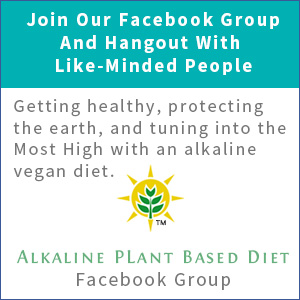Vitamin C Use Inconclusive As To Whether It Fights Cancer?

I am not a supporter of taking synthetic vitamin supplements and studies have shown that extended use of nutrient supplements can be harmful. The best way to get your nutrients is through the consumption of plant foods.
The best way to support health is to consume a diet centered on the consumption of plant foods, while minimizing or avoiding the consumption of meat, dairy, and processed foods.
If short-term vitamin supplementation can be used to protect one’s health I am for it. Vitamin C was used in the 1970’s in the U.S. to fight cancer and the results of the research since then have been confusing as to whether vitamin C can be used to successfully treat cancer.
Financial agendas have been the reason for the confusion because there is little money to be made from treating cancer with vitamin C. Here is the timeline of its use and it confusing results:
This 1975 study[1] showed the intravenous delivery of vitamin C caused a man’s malignant form of non-Hodgkins lymphoma to regress. His doctor’s stopped his intravenous vitamin C treatment and this cancer came roaring back.
His doctor’s then put him back on the intravenous vitamin C treatment and his cancer went into a complete second remission. This would seem like the intravenous vitamin C treatment caused the remission, but researchers argued the remission could have been caused by a natural spontaneous remission that does occur rarely.
It does seem that it would be a highly unlikely coincidence that the cancer would go into remission after both intravenous vitamin C treatments though.
After that study researchers tried to get funding to further investigate the use of intravenous vitamin C as a cancer fighting agent, but they were unsuccessful. No agency wanted to fund the research.
A group of researchers had been treating cancer patients successfully with the use of intravenous vitamin C and after failing to secure money to fund their research[2] they pooled together their resources and conducted the research themselves.
In 1978 they published that intravenous vitamin C significantly extended the lives of people receiving the treatment in comparison to those who didn’t. The research came under attack because it didn’t have all the controls it should have had, which was likely due to the lack of funding they had to work with.
The good thing is that even though the research came under attack it shined enough light on the subject that the it forced the National Cancer Institute (NCI) to fund a study to look further into vitamin C’s ability to fight cancer.
This is where things begin to seem fishy. The Mayo Clinic performed the NCI funded randomized control trials[3] which did not find that vitamin C helped at all in reversing cancer.
This was an unexpected result that was clearly opposite of what the previous research found. The fishy thing is the Mayo Clinic research design had one major flaw.
The Mayo Clinic research was designed to mimic the prior studies but it administered 10g of vitamin C orally daily, while the previous studies administered the 10g of vitamin C intravenously.
They researchers supposedly thought that administering oral supplementation would have the same effect as administering IV vitamin C. This was inexcusable because the study was supposed to replicate earlier studies so the vitamin C should have been administered through IV.
It was supposedly uncovered decades later the that body regulates the amount of vitamin C passing through the intestines that is allowed to enter the bloodstream.
After around 200mg of vitamin is allowed to enter the bloodstream from the small intestine, the body severely cuts off vitamin C from entering the bloodstream.
IV vitamin C allows all of the vitamin to enter the bloodstream to more effectively target cancer cells. The Mayo Clinic design failed because of the way its design administered the vitamin C.
Subsequent research has shown vitamin C to have no effect on reversing cancer. How could the results be so different from the initial results showing intravenous vitamin C clearly and significantly treated cancer?
After reviewing the Mayo Clinic study and the subsequent studies it was found these studies all administered the vitamin C orally. Many people found the way the whole situation was approached was fishy, and some practitioners continued to administer IV vitamin C with positive results.
There have been some pilot studies done afterwards using IV vitamin C but the results have been inclusive. The good thing is high dosages of IV vitamin C are relatively safe, so more non-biased studies need to be done to be able to truly understand IV vitamin C’s role in fighting cancer
[1] E Cameron, A Campbel, T Jack. The orthomolecular treatment of cancer. III. Reticulum cell sarcoma: double complete regression induced by high-dose ascorbic acid therapy. Chem Biol Interact. 1975 Nov;11(5):387-93.
[2] E Cameron, L Pauling. Supplemental ascorbate in the supportive treatment of cancer: reevaluation of prolongation of survival times in terminal human cancer. Proc Natl Acad Sci U S A. 1978 Sep;75(9):4538-42.
[3] C G Moertel, T R Fleming, E T Creagan, J Rubin, M J O’Connell, M M Ames. High-dose vitamin C versus placebo in the treatment of patients with advanced cancer who have had no prior chemotherapy. A randomized double-blind comparison. N Engl J Med. 1985 Jan 17;312(3):137-41.







